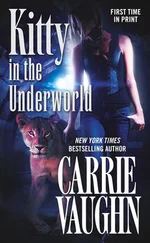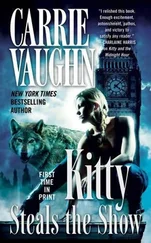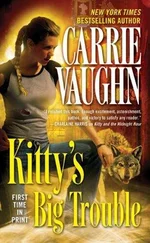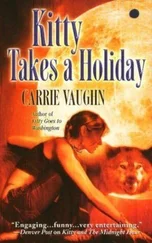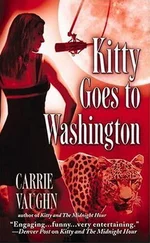But such wild rumors will grow up around a gentleman who only leaves his house at night.
Daniel stood at the edge of the pit and prayed. God of my ancestors, wise in all things, powerful beyond measure, thank you for my life. All praise is yours.
Daniel’s rivals at court stood around the pit, almost daring to smile.
King Darius—a proud king, susceptible to flattery and prone to suspicions—would not face him. He could not look Daniel in the eye as he condemned him, however much Daniel stared at him, trying to meet his gaze. Darius had trusted him, once.
“Put him in,” the king said and turned away.
The royal guards shoved Daniel onto the ramp that led into the brick-lined pit of lions. Daniel fell and rolled down. The thick wooden lid closed overhead, and the light was gone.
* * *
For a man who had been twice-conquered, Daniel had done well. He stood among the advisers to Darius, King of Persia. Before that, he had counseled Nebuchadnezzar of Babylon. Then Persia invaded. Because Daniel was not Babylonian, he was spared the fate of the conquered. He was an Israelite and already in exile.
The Persian king held court in the great atrium of the palace at Babylon, which until five years ago had been the seat of the kings of Babylonia. Civilizations had risen and fallen on this spot for countless centuries. Cities, palaces, and the fortunes of men like Daniel rose and fell with them.
The atrium of the palace reached several stories high, a tower soaring to heaven, a triumph of empire and ambition. Fountains and artificial streams watered a jungle of vegetation, trees—palms, cedars, poplars—and rare flowers that climbed for the sunlight shining through windows set high in the reaching walls. The splash and trickle of water made a constant sound that blended with the murmur of voices in conversation and with the music from the chimes and lyres of the musicians. Darius nominally conducted business when he held court here, but the setting was pleasant and distracting—a world apart from the dirt and heat outside.
Near the musicians, a court dancer performed, a piece of living artwork. Suza moved like a sapling in the wind, swaying, her limbs curving. Her bare feet touched the floor with the lightest grace. Bangles around her ankles rang at each step. Her gold tunic, tightly cinched, showed the curves of her hips and breasts. Her dark, curling hair—loose and unadorned, scandalous and alluring—fell down her back. She had almond-shaped eyes the color of mahogany.
Much food and wine circulated, carried by slaves in gleaming white tunics, bearing bronze ewers and platters. Supplicants to the king were lulled and diverted. Unfortunately, many of the advisers and administrators were as well. Not to mention the king himself, so noble in his tunic and robe, whiter than the plumage of egrets. His rich headdress sat perfectly on his head, pressing on his curled and oiled hair, even as he leaned back in his throne, half-asleep.
Daniel drank water, to keep his senses clear.
The court was in the midst of hearing an adultery case. Two prominent merchants claimed they had seen the wife of a judge in a dalliance with a young man. The woman was young and beautiful. The rumors flew. Many could believe such a deed of her, no matter that her husband was well respected and their family admired. If found guilty, she would be put to death.
In the marketplace, around the wells and plazas where people gathered and talked, Daniel had heard other rumors: The merchants had made advances toward her, she had rejected them, and now they took revenge on her. When Daniel focused on the merchants, he could smell the sweat of a lie on their skin, even through the smell of spice, flowers, honey, and perfume.
The merchants made a great deal of the story they told the king, dramatically relating how they chanced upon the house’s garden, saw the lady send her maids away, watched as the young man in question appeared from his hiding place, and then how the couple sported in the shade of a tree outside her husband’s very window. The witnesses did not seem concerned that the identity of this young man remained a mystery.
The husband—a self-made man who seemed uncomfortable in his finery—looked stunned, uncertain, glancing back and forth between the merchants and his wife. The lady stood apart. She was draped in a rich silk tunic and shawl. Two veiled maids stood with her. Her gaze was downcast, but her posture was proud.
The merchants finished and begged the king for his judgment.
Darius glanced at the husband, then at his advisers. He said, “It is difficult to deny the firsthand testimony of such esteemed citizens of our empire. What say my advisers?”
They agreed, bowing and murmuring, that yes, the account told by such respected witnesses was undeniable, the lady must be guilty, yes, yes.
Hands clasped behind his back, Daniel stepped forward, leaned close to Darius’s ear and said, “Sire, question them separately. Discover if their testimony remains as sure.”
One of the advisers spoke angrily, “Why must you always be contrary, foreigner?”
Lifting a brow, the king said, “You do enjoy making things difficult, Daniel.”
“I seek only the truth, Sire.” He was out of place in his simple tunic belted with a plain brown sash.
“And if such truth goes against my wishes?”
“Truth is truth, Sire,” Daniel said with a careful bow.
From another adviser, a not-so-subtle whisper reached them. “See how arrogant he is, he thinks his truth is greater than the king!”
Daniel met the king’s gaze and did not flinch.
Darius looked away and gestured, “You. Come forward.”
The first merchant approached the dais and bowed. Did his hands tremble ever so slightly? Darius tipped a finger at Daniel, indicating he should proceed.
In a low voice, so that only the king, the other advisers, and the merchant could hear, Daniel asked, “What kind of tree was it that you saw them under?”
The man shrugged, glancing over his shoulder at his fellow, but Daniel stepped beside him and held his shoulder, to keep him facing forward. The man said, “How should I know? I’m not a gardener.”
“Just describe it.”
“It … it was wide. With many branches spreading out.”
“And the leaves?”
“Dark green. Oval.”
“Did it have fruit? Lemons, perhaps? Or apples?”
“Yes, yes. Perhaps they were lemons.”
“Thank you.”
Released, the merchant retreated from the dais. Darius called the second forward. Daniel guided him, so the two merchants could not exchange words.
When asked what tree it had been, the second merchant said, “Why, I’m sure it was a date palm.”
The most common tree in all of Babylon, of course.
“Tall?” Daniel said.
“Yes, yes. Very tall.”
“And the leaves?”
“Fronds, high off the ground. You know what a palm looks like.”
“Thank you.”
As the second merchant retreated, Daniel said to the king and the other advisers, “Sire, they are lying.”
Darius nodded and announced his verdict. “Their story is invention. They have witnessed falsely against an innocent woman.”
Then came an uproar, because the punishment for false witnessing was death. Darius ordered guards to come, the advisers shuffled and grumbled among themselves, and the courtiers sighed in wonder. The husband ran to his wife. When she lifted her face to him, tears covered her cheeks. They embraced, abased themselves before the king, and begged leave to return to their home.
Daniel stood out of the way, smiling wryly at the havoc he’d created.
“That was well done, Daniel, my friend.” He looked behind him to find Suza leaning on a marble pillar, her arms crossed, grinning. “But you make enemies. The sycophants hate it when you make them look bad.” She nodded at the advisers who huddled in conversation. Occasionally one glanced at him. Daniel could almost taste their envy of the attention he garnered from the king. It was like sand, dry and coarse.
Читать дальше

